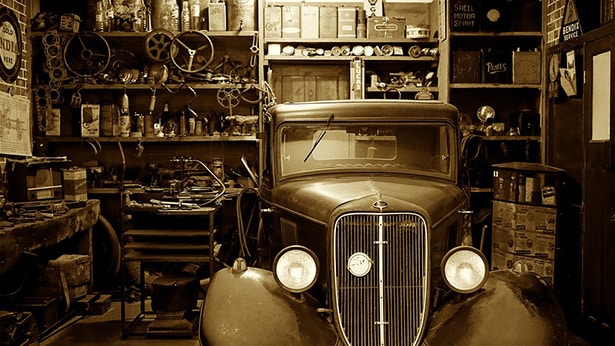
What is the difference between an antique, a classic and a vintage car? If you ask ten automobile enthusiasts you just might get ten different answers. There isn’t a cut and dry answer to this question. More often than not it depends on where you come from.
You will likely get a definitive answer when you register your vehicle. Each state has its own definition between the three classifications. The laws here in Texas differ from those in California and if you cross the pond and ask our British brothers for their definition you are likely to get yet another answer.
Three factors typically come into play when deciding which classification to attach to a vehicle. The year it was made, the condition it is currently in (meaning customized or original), and how you intend to use the vehicle. Fortunately here in the states there seems to be a consensus forming on the three different classifications. Here are three definitions we think most places are willing to agree upon even though they overlap a little and when plotted out, the definitions would look more like a Venn diagram.
Classic Vehicle: To qualify as a classic most states require a vehicle to be at least 20 years old. It should also be maintained or restored so that it stays as close to original as possible. Taking a 1967 Dodge Challenger and dropping in the all new 392 Crate HEMI Engine Kit is going to kick this car out of the “classic” classification.
Antique Vehicle: Typically, by state law, a car or truck that is over 40 years old is considered to be an antique. Like the classic, it is expected to be maintained or restored to original specs whenever possible.
Vintage Vehicle: Vintage vehicle classification is somewhat of a grey area from state to state, but it is safe to say that many agree it is a vehicle produced between 1919 and 1930. But wait… doesn’t that mean it would also mean it is an antique since it is over 40 years old? For arguments sake let’s just go with the consensus that cars made in the second decade of the 20th century are considered vintage. Also there are often fewer restrictions for vintage vehicles on the originality of the vehicle due to the rarity of parts available.
So according to these general state definitions a 1991 Ford Mustang is considered a classic car? Technically it is in many states. We found a great breakdown of the technical classifications for the state of Texas from our friends at the SEMA Action Network (SAN). It states that a vehicle in Texas can be considered a classic or antique after it becomes 25 years old. The difference in classification comes down to how you use it. If it is a collector item, is purely for show, and will only be driven to events or a mechanic then it can be registered as an antique. If you plan on driving it for enjoyment it is a classic.
There are many organizations that challenge the state laws and have classifications of their own. For example, the Classic Car Club of America has a glossary of terms that clearly define what they consider to be an antique, vintage or classic car. Unless that 1991 Mustang we talked about earlier was the first one off the production line, it might not considered “special” enough to be considered a classic by the CCCA. They want the vehicle to be from an exclusive list that includes only specific important marques built between largely between 1925 and 1948.
Since 1935 the Antique Automobile Club of America has been defining classifications for longer than most of us have been alive and they are certainly experts in the arena. Many believe that their definition of classic cars are the be-all and end-all definitions.
The classification of your 4-wheeled prized possession might also be determined by your insurance company. Hagerty, the leading insurer of collector cars, has their own definitions and qualifications. Your insurance provider probably has their own as well which may ultimately decide how you define your dream machine. This makes sense to us since they are the ones responsible for covering it against loss or damages.
